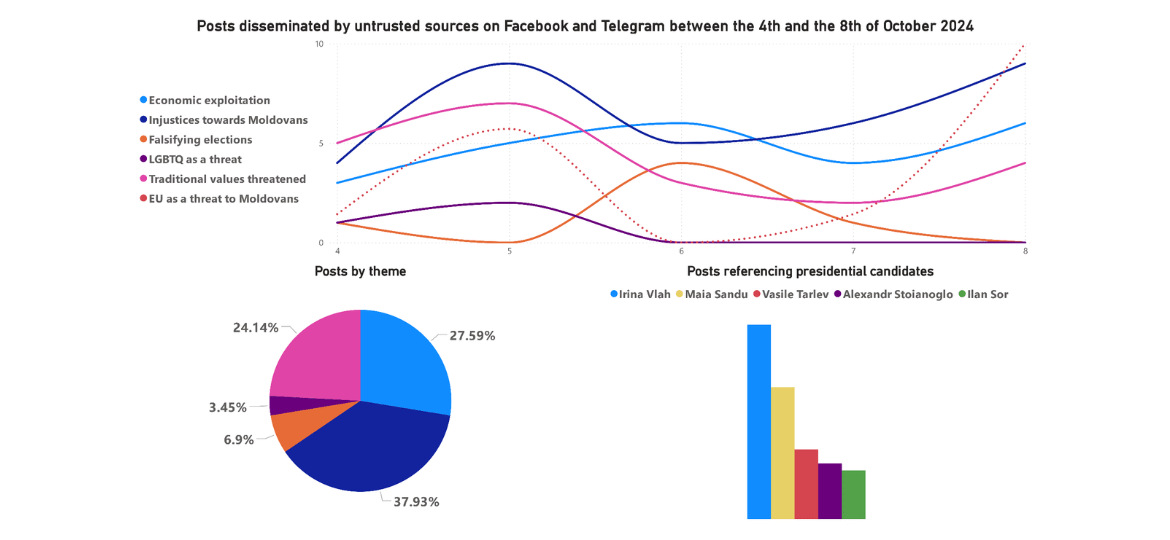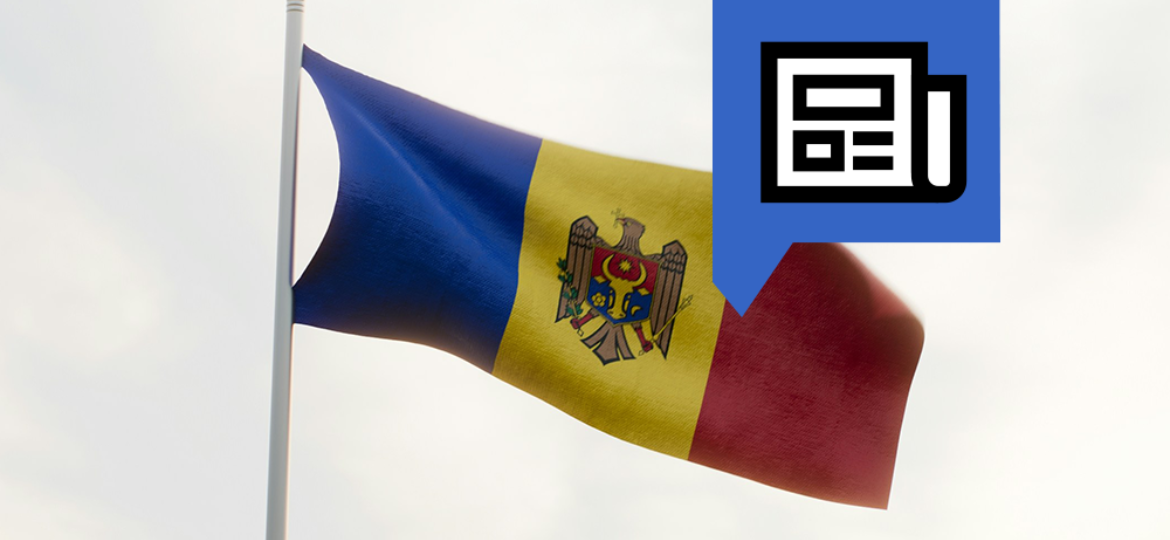We are 11 days away from the elections in Moldova, and the debates have started on Moldova1, with two editions this week and two the following week. The first round of debates was supposed to feature the top three candidates, according to opinion polls: incumbent president Maia Sandu, former prosecutor-general Alexandr Stoianoglo, and two-time elected mayor of the second-largest city in Moldova, Renato Usatîi. Sandu refused to confirm in advance whether she would participate in the debate, citing her wish not to “run alongside invalid candidates,” a reference to politicians supported by business interests or criminal groups. Stoianoglo left the studio after the first round of questions, stating that he had no inquiries for Usatîi, as he wished to have a constructive discussion with representatives of the current government. Thus, the first debate was a 30-minute interview with Renato Usatîi. The recording of the debate can be watched on Moldova1’s website (no automated translated captions available).
More interesting, the TV station features live fact-checking sessions shortly after the debate, with the help of the experts over at StopFals. The journalists have been verifying the claims made by candidates regarding the presidential elections and the referendum in a one-of-a-kind approach that has never been tested previously in Moldova. We salute their efforts and will share the debunking articles that will follow on the topic!
Oldies but goldies: the main anti-EU narratives revived by a new online platform affiliated with Ilan Şor: In an investigation by stopfals.md, a new source of disinformation is revealed. Moldova24 (MD24) presents itself as an online TV station with non-stop video broadcasting. The transmitters of disinformation narratives frequently include people from political formations affiliated with the criminally convicted oligarch Ilan Șor. The content is based on Moscow’s main false narratives against democracy, the European Union, and the EU accession referendum. The content refers to the situation in the Republic of Moldova, presented exclusively negatively and highlighting messages that support traditional disinformation narratives promoted by pro-Kremlin actors, such as “Amending the Constitution through a referendum will mean the loss of independence and neutrality of the country,” “The Orthodox Church is in danger,” “The EU and the authorities of the Republic of Moldova make propaganda for LGBT,” and “Moldovan agricultural lands, the target of foreigners.” The Information and Security Service of the Republic of Moldova (SIS) requested internet operators to block access to the website Moldova24.online, but its messages are still available on TikTok, YouTube, and Telegram.
No place in the EU for Moldovan exports: Images featuring Maia Sandu are used to illustrate panic-inducing messages about how farmers will suffer greatly because of EU legislation. “The European market is essentially closed to Moldovan products due to high competition and their non-compliance with EU requirements. Frightened by the farmers’ ultimatum to strike, the Moldovan authorities are ready to introduce a state of emergency in agriculture. Banks have already sent out notices to farmers about insolvency and forced debt collection,” reads one of the messages shared on Telegram. Moreover, winemakers are targeted by tailored disinformation campaigns, claiming they will go bankrupt in the EU market: “Winemaking appeared with the Moldavian state and has always been the main export product. But what happens to it now? Moldovan winemakers are pushed to the EU market where there is fierce competition. The industry giants there will swallow us whole. Already now, our natural wine is adjusted to European ‘quality’ standards — with additives. Our farms are sold, vineyards are destroyed. Dear winegrowers, you are our pride! The current government is making noise around you, but you are not convinced by empty promises. Know where you are truly loved and welcome. And this is not the EU.” Given the profile of Moldovan exports, with more than one-third being agriculture-related, it is no wonder this is a sensitive subject and such narratives gain traction.
Moldovan identity and its defenders: Flash mobs by people defending the Moldovan identity have been organized in Chişinău and Bălţi. The “loss of identity” is linked to joining the EU, which implies that Moldova will be absorbed via unification by Romania. “Young patriots in national costumes, with music, goodies, and placards in defence of the Moldovan national identity, marched through Chişinău. The young people spoke out against the absorption of the country by Romania. Yes for an independent, autonomous, and distinct Moldova! No to the EU and a president with Romanian citizenship.” These actions are linked to an organized campaign aimed at discrediting the referendum, where the main narrative is that Moldova will cease to exist if it joins the EU, be it via absorption into Romania, cultural dissolution, or even “ethnocide,” explained as a core value of the EU. Moreover, it is always linked with the Orthodox identity of the Moldovan people, one that has been endangered by Maia Sandu through her support for the Bessarabian Metropolis linked to the Romanian Orthodox Church (as opposed to the Russian one), which is decoded as “promoting anti-Christian values and the political interests of the EU.”
A country without an army: A fake narrative is circulating online about the participation of the Moldovan military in the EUFOR ALTHEA operation, carried out by the European Union in Bosnia and Herzegovina. It claims that the Moldovan army would have passed under the control of Romania, with Ilan Şor writing on Telegram that “Moldovans do not want our military to become a bargaining chip in other people’s games.” In reality, control over the army was not transferred to Romania, and forgeries with similar titles were promoted before, when an agreement between the defense ministers of the two countries was signed in June.
Below you’ll find a visualisation of the disinformation trends for the last few days, based on posts shared on Facebook and Telegram.
This newsletter is part of our ongoing work with the Bulgarian-Romanian Observatory of Digital Media, member of EDMO.

Funky Citizens
